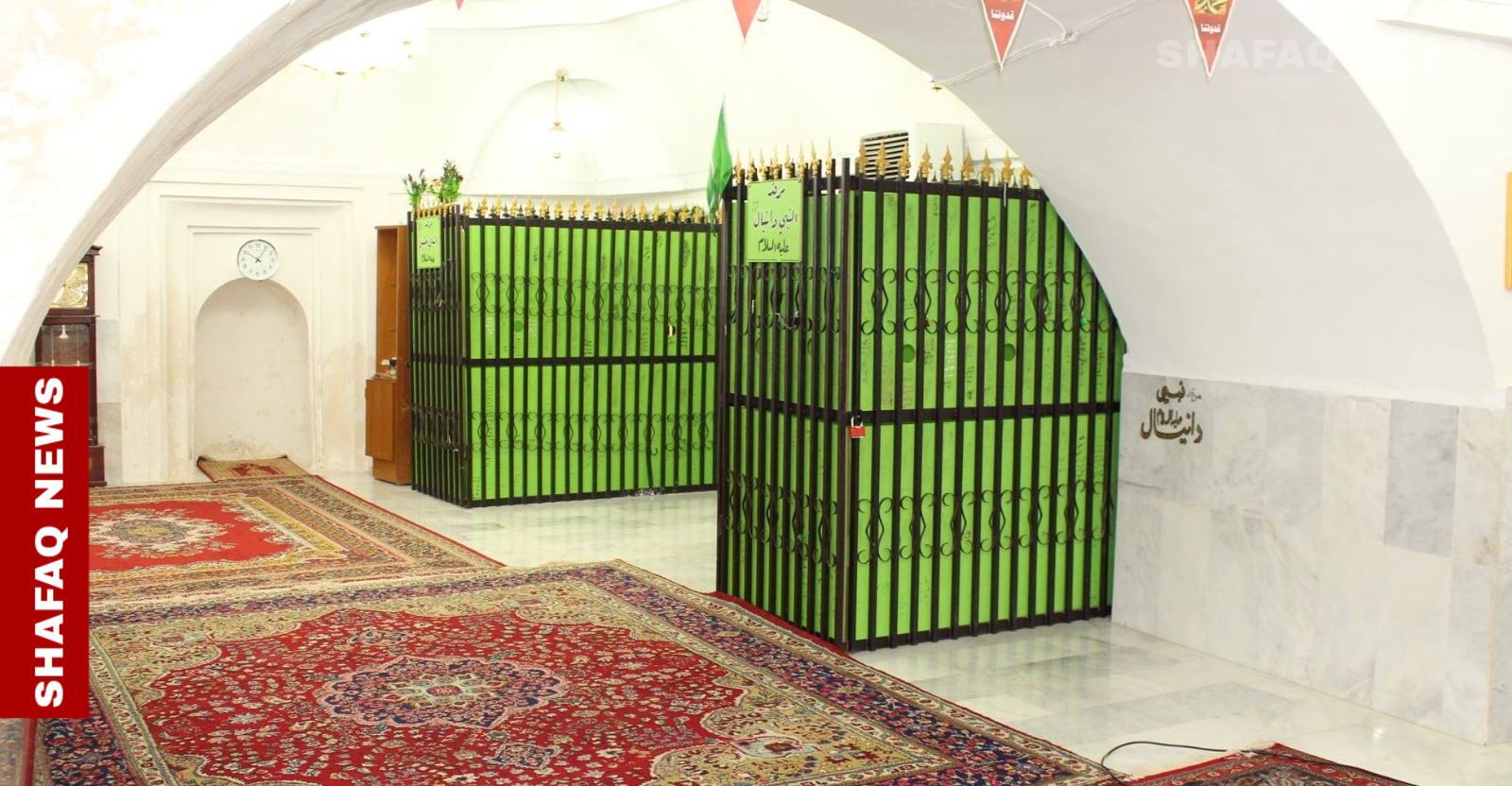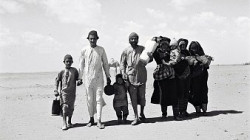Echoes of the past: Kirkuk’s Jewish heritage and the struggle for preservation

Shafaq News/ In the heart of Kirkuk’s old city, near the towering walls of the ancient citadel, lies a forgotten piece of history. Hidden beneath dust and time are the remnants of what was once a thriving Jewish neighborhood, where families gathered for prayer, merchants filled the markets with their goods, and children studied sacred texts in synagogues that have long since vanished. Today, little remains except scattered stones and fading memories.
“Kirkuk was once a place where Jews, Muslims, and Christians lived side by side,” recalled Yitzhak Bar-Moshe, an Iraqi Jewish writer who documented the lives of Iraq’s Jewish communities before their forced exodus. “We were neighbors. We celebrated together, mourned together. Then, it all disappeared.”
For centuries, Kirkuk’s Jewish population played an essential role in the city’s economy, culture, and religious life. They were merchants, teachers, and craftsmen who contributed to the city’s prosperity. However, due to rising nationalism, anti-Jewish sentiment, and the mass displacement of Jews from Iraq between 1948 and 1952, Kirkuk’s Jewish community all but vanished. What was once a city of shared traditions and religious harmony became a place where an entire community’s history was erased from collective memory.
Today, only fragments of that history remain. The Prophet Daniel Mosque, originally a Jewish place of worship, still stands as a reminder of this lost heritage. The Jewish cemetery, once well-kept and respected, now lies in ruins. The city that was once a symbol of religious coexistence is now struggling to preserve the traces of a forgotten people. Understanding how the Jewish community flourished in Kirkuk before its disappearance helps shed light on its lasting contributions and the importance of preserving what remains.
Jewish Presence in Kirkuk
The Jewish presence in Kirkuk dates back centuries, with historical records indicating that the community was concentrated in the citadel and the Briadi neighborhood. By the late 19th century, roughly 200 Jewish families resided in the city, living in a separate but well-integrated quarter. The Jewish population grew over the following decades, reaching 4,042 by 1947, making up 1.05% of the total population.
At this time, Kirkuk’s Jews were not merely residents of the city—they were integral to its economy, culture, and intellectual life. They ran successful businesses, operated schools, and maintained vibrant religious institutions. But despite their deep roots in Kirkuk, their future was uncertain. Rising tensions in Iraq in the late 1940s would soon disrupt centuries of Jewish presence, leading to an exodus that altered the city’s demographic landscape forever.
Between 1948 and 1952, the Iraqi government enacted a series of anti-Jewish laws, stripping Jews of their citizenship, property rights, and economic freedom. These policies led to a mass exodus, with over 90% of Iraq’s Jewish population (approximately 120,000 people) fleeing the country, mostly to Israel, the United Kingdom, and North America.
For the Jewish community of Kirkuk, this was the beginning of the end. Families were forced to abandon their homes, businesses, and synagogues, leaving behind a city that had been their home for centuries.
Religious and Cultural Contributions
One of the most well-known Jewish sites in Kirkuk was the Prophet Daniel Mosque, originally a synagogue before being converted into a Muslim place of worship. Despite this transformation, elements of its Jewish past remained, and Jewish and Muslim traditions often intertwined. Oral histories mention that even after the mosque’s conversion, some local Jews would still visit the site to offer prayers, demonstrating the deep interfaith connections that once defined Kirkuk.
Education was another cornerstone of the Jewish presence in Kirkuk. Many Jewish children attended Alliance Israélite Universelle schools, an institution established by French Jewish philanthropists to promote modern education among Jewish communities in the Middle East. These schools provided high-quality education, teaching Hebrew, Arabic, mathematics, and trade skills, benefiting not only Jewish students but also members of other communities who enrolled in these institutions.
In recent years, however, there has been some recognition of Kirkuk’s Jewish history. The Iraqi Ministry of Culture has allocated funds for the restoration of the Kirkuk Citadel, which once housed Jewish religious sites. Additionally, UNESCO has tentatively listed the citadel as a potential World Heritage Site, raising hopes for future preservation efforts.
Jewish Contributions to Trade and Commerce
Kirkuk’s Jewish community also played a role in the city’s commerce, trade, and finance. Jewish merchants dominated the textile industry, owning many of the city’s most successful fabric and clothing businesses. Many were also goldsmiths, specializing in jewelry making, and some served as financiers, offering banking services in an era before Iraq had a formal banking system. Their expertise in trade and finance made them one of the wealthiest and most influential communities in Kirkuk.
Beyond their economic influence, Jewish Kirkukis were deeply integrated into the city’s social fabric. They spoke Arabic, Kurdish, and Neo-Aramaic. They participated in local festivals, shared in communal celebrations, and maintained close relationships with their Muslim and Christian neighbors. Their ability to seamlessly blend into Kirkuk’s cultural and economic landscape demonstrated their lasting impact on the city.
The Story of Mullah Aboud
Perhaps no story better exemplifies Kirkuk’s tradition of religious and cultural coexistence than that of Mullah Aboud, a Jewish-born orphan who became one of the city’s most respected Muslim religious figures.
Aboud was born in the Briadi neighborhood to Jewish parents, but his life changed forever when his mother died during childbirth. In Jewish tradition, a child whose mother dies at birth is sometimes considered a bearer of bad luck, and as a result, Aboud was rejected by his extended family. His father, Yusuf, had no choice but to seek help from Muslim neighbors, hoping someone would take in his newborn son.
A local woman introduced him to Hassan Saqi and Zubeida Khanum, a Muslim couple who had recently lost a child of their own. Moved by the boy’s tragic fate, they agreed to raise him as their own. Under their care, he was renamed Aboud Abdullah and was raised in an Islamichousehold.
